Residents of ultra-Orthodox town will be allowed to leave for work or other essential matters, as rest of country emerges from four-days of banned travel between cities
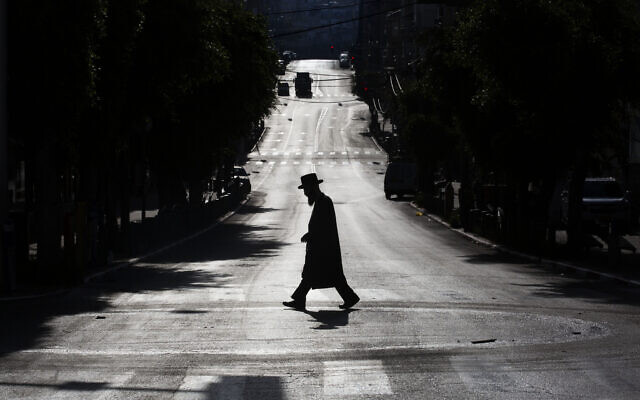
A strict quarantine on the city of Bnei Brak will be eased Friday morning, allowing residents to leave the city for work, the Health Ministry said early Friday.
The ultra-Orthodox city has been under a full lockdown since April 3, with entry and exit from the city forbidden in almost all cases, as authorities attempted to tamp down on the spread of the novel coronavirus in the densely packed Tel Aviv suburb.
Starting at 6 a.m., residents will be allowed to leave the city for work, medical treatments, transferring children between separated parents, funerals of immediate relatives and “other necessary matters approved ahead of time,” the Health Ministry said in a statement sent out at 2:30 a.m.
The eased lockdown will go into effect as the rest of country emerges from a four-day period in which people were similarly forbidden from moving between cities, and in Jerusalem, moving between neighborhoods, amid fears that family trips for the Passover holiday could help the disease spread.
Nationwide, 9,968 people have been confirmed to have the virus and 86 people have died, according to Health Ministry figures released late Thursday. In recent days, officials have pointed to signs the disease’s spread may have leveled off and have begun to discuss possibly rolling back some restrictions later this month.
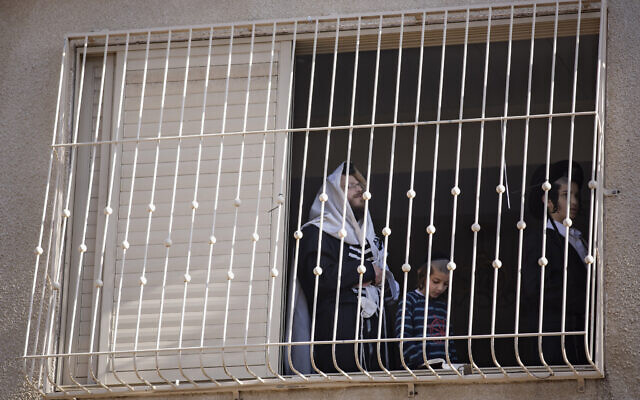
New figures released earlier Thursday continued to show the cities of Jerusalem and Bnei Brak far outpacing other locations in patient numbers, with 1,630 and 1,594 cases respectively. Tel Aviv was at a distant third with 415 patients, followed by Ashkleon with 216 and Elad with 215.
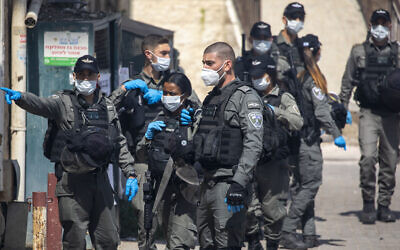
Three-quarters of the cases in Jerusalem have come from majority ultra-Orthodox neighborhoods and officials are said to be considering locking down certain areas of the capital only.
The Health Ministry statement, released after a late-night high level meeting, said a decision on Jerusalem would be made shortly.
Despite the eased rules, ministry officials urged Israelis to continue maintaining social distancing regulations and not to become complacent.
“The danger of the coronavirus has not passed. We all saw what happened in other countries around the world,” Health Minister Yaakov Litzman said in the statement, likely referring to countries in east Asia that have seen a resurgence of the virus after rolling back restrictions. “A gradual opening of the economy will only be possible if we all make sure to keep the rules, despite the hardships.”
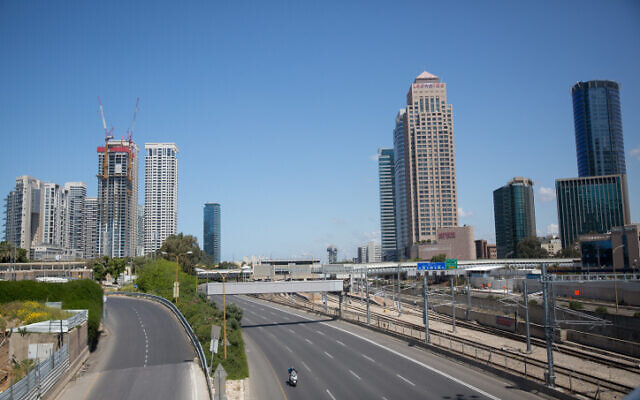
Health officials had reportedly pushed for the nationwide lockdown, which had begun Tuesday evening, to be extended until the end of Passover on April 15, but were shot down by the Finance Ministry, which has warned of lasting damage to the nation’s economy the longer restrictions remain in place.
“Clarification: The limitations placed before the holiday on workplaces will be removed tomorrow as planned,” a Treasury spokesman said in a statement. “The situation will return to the restrictions in place before Passover Eve.”
Under the rules set to go back into effect at 6 a.m. Israelis may travel for work or other essential needs, such as shopping for food or medicine, but are generally barred from being more than 100 meters from their home. Gatherings of more than two people are forbidden. People are also supposed to wear facemasks when out of the home, but enforcement on that measure is not set to go into effect until Sunday.
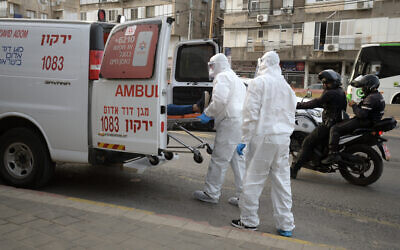
Ynet reported that throughout the holiday Wednesday and Thursday, police had handed out hundreds of fines to people breaking Health Ministry guidelines, which included a full curfew from Wednesday night to Thursday morning. Channel 12 said over 2,500 fines were handed out.
In Bnei Brak, residents have been strictly forbidden from leaving the city since last Friday, with massive amounts of police officers and troops on hand to enforce the restrictions, or help those in need of food or other supplies.
Mayor Avraham Rubinstein and residents had complained about the restrictions, despite the high number of cases there.
Some in ultra-Orthodox communities around the country had initially dismissed directives to shut down schools and synagogues or keep from congregating, leading to large outbreaks among members.
Officials believe the actual number of infected in Bnei Brak to be several times higher than the confirmed tally. On Friday, an initiative to randomly test some 1,500 residents and get a clearer gauge of the city’s health is reportedly set to kick off.
As reported by The Times of Israel
